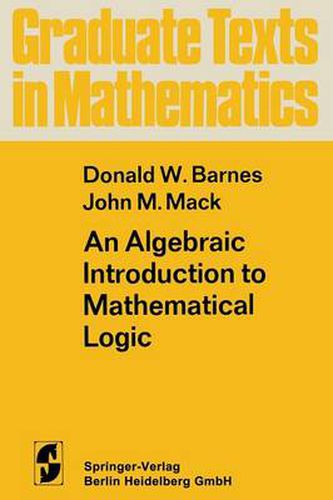Readings Newsletter
Become a Readings Member to make your shopping experience even easier.
Sign in or sign up for free!
You’re not far away from qualifying for FREE standard shipping within Australia
You’ve qualified for FREE standard shipping within Australia
The cart is loading…






This title is printed to order. This book may have been self-published. If so, we cannot guarantee the quality of the content. In the main most books will have gone through the editing process however some may not. We therefore suggest that you be aware of this before ordering this book. If in doubt check either the author or publisher’s details as we are unable to accept any returns unless they are faulty. Please contact us if you have any questions.
This book is intended for mathematicians. Its origins lie in a course of lectures given by an algebraist to a class which had just completed a sub stantial course on abstract algebra. Consequently, our treatment of the sub ject is algebraic. Although we assume a reasonable level of sophistication in algebra, the text requires little more than the basic notions of group, ring, module, etc. A more detailed knowledge of algebra is required for some of the exercises. We also assume a familiarity with the main ideas of set theory, including cardinal numbers and Zorn’s Lemma. In this book, we carry out a mathematical study of the logic used in mathematics. We do this by constructing a mathematical model of logic and applying mathematics to analyse the properties of the model. We therefore regard all our existing knowledge of mathematics as being applicable to the analysis of the model, and in particular we accept set theory as part of the meta-Ianguage. We are not attempting to construct a foundation on which all mathematics is to be based–rather, any conclusions to be drawn about the foundations of mathematics come only by analogy with the model, and are to be regarded in much the same way as the conclusions drawn from any scientific theory.
$9.00 standard shipping within Australia
FREE standard shipping within Australia for orders over $100.00
Express & International shipping calculated at checkout
This title is printed to order. This book may have been self-published. If so, we cannot guarantee the quality of the content. In the main most books will have gone through the editing process however some may not. We therefore suggest that you be aware of this before ordering this book. If in doubt check either the author or publisher’s details as we are unable to accept any returns unless they are faulty. Please contact us if you have any questions.
This book is intended for mathematicians. Its origins lie in a course of lectures given by an algebraist to a class which had just completed a sub stantial course on abstract algebra. Consequently, our treatment of the sub ject is algebraic. Although we assume a reasonable level of sophistication in algebra, the text requires little more than the basic notions of group, ring, module, etc. A more detailed knowledge of algebra is required for some of the exercises. We also assume a familiarity with the main ideas of set theory, including cardinal numbers and Zorn’s Lemma. In this book, we carry out a mathematical study of the logic used in mathematics. We do this by constructing a mathematical model of logic and applying mathematics to analyse the properties of the model. We therefore regard all our existing knowledge of mathematics as being applicable to the analysis of the model, and in particular we accept set theory as part of the meta-Ianguage. We are not attempting to construct a foundation on which all mathematics is to be based–rather, any conclusions to be drawn about the foundations of mathematics come only by analogy with the model, and are to be regarded in much the same way as the conclusions drawn from any scientific theory.